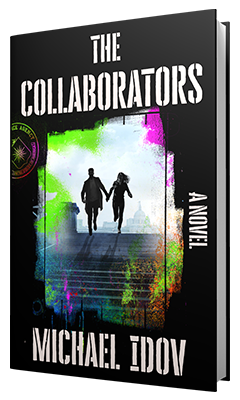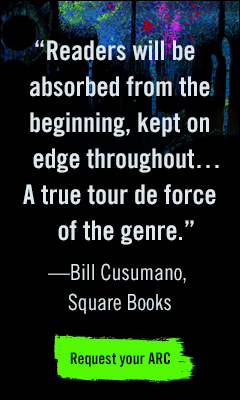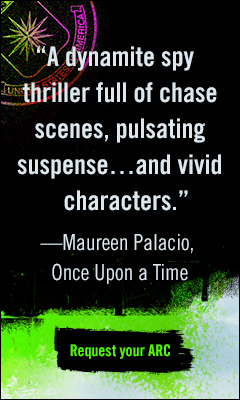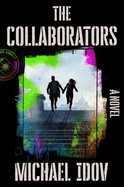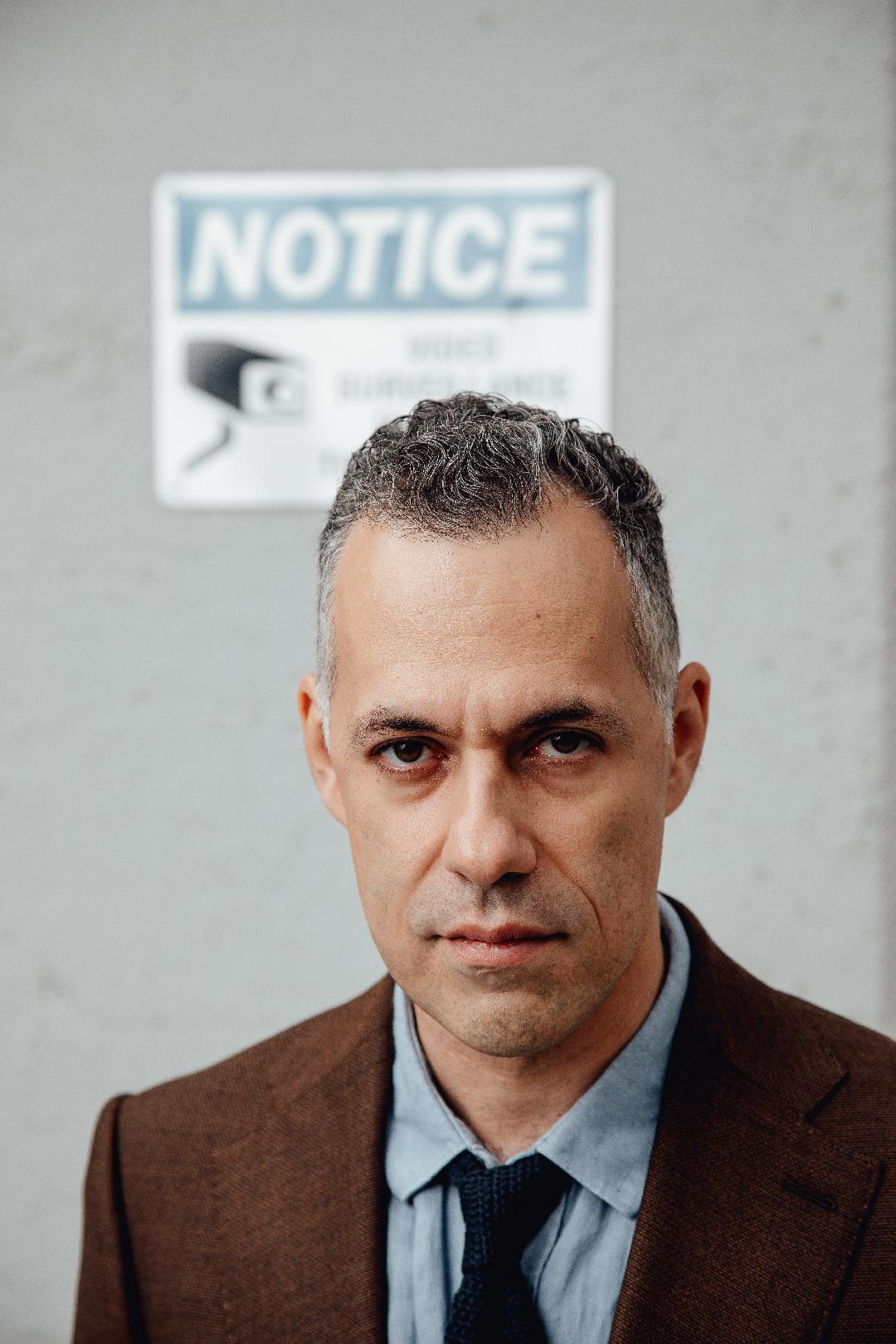The Collaborators
by Michael Idov
"When the MiG-29 swung into view, barely 50 yards portside, passenger Anton Basmanny in seat 12A didn't feel all that surprised. In fact, he even knew the reason it was there. He was the reason.... When you were the Kremlin's least favorite blogger, a lot could happen." Thus opens The Collaborators, a ripping gem of a novel by Michael Idov (Ground Up; Dressed Up for a Riot) that transports readers around the world--Minsk, Moscow, London, Berlin, Los Angeles, Portugal, Morocco, and more--and through a range of geopolitical and interpersonal intrigues. Propulsively paced, and containing as much humor, romance, philosophy, and whimsy as classic spy-thriller action, this brilliant novel will charm readers and linger long after its final pages.
After beginning with the plight of the Kremlin's least favorite blogger on board a troubled flight to Riga, Idov's narrative jumps to an American spy at work in that capital city. "At Yale, from where the CIA recruited him, Ari Falk had been an Army ROTC scholarship student... and a Slavic literature major: half meathead, half egghead. Add a Jewish name, desperate poverty, and tense foster-kid demeanor, and the result was so difficult to parse that most peers gave up without trying." Falk likes Riga, but his job concerns him: he may be a bit too ethical, or even sentimental, for CIA work. "Falk felt like the farmer who adopted a new shelter cat each time a coyote ate the previous one. Once you subtracted the issue of intent, he ran a coyote-feeding program." Falk is looking for Anton Basmanny, who has not arrived as expected.
Pages later, Idov introduces Maya Chou Obrandt, an aspiring actor, daughter to a Taiwanese-American mother and a Russian-American, self-made-billionaire financier father whose death by apparent suicide has just been announced on the news--but with no body, his fate remains unknown. Idle, frustrated, she sets off to search for her missing father. "As long as she was Maya Chou Obrandt, Girl Detective, she wasn't Maya Chou Obrandt the twice-relapsed twenty-three-year-old addict, or Maya Chou Obrandt the corpse." On their separate but intersecting missions, Maya and Falk meet by accident at a marina in Tangier, and team up as an unlikely duo: the disaffected CIA agent and the wayward heiress, who uncover decades-old plots beyond either's imagining.
The Collaborators features short, punchy chunks of narrative switching close-third-person perspectives between a number of characters. Anton, Falk, and Maya are joined by a Russian bagman, a British open-source intelligence innovator with no poker face, and players from various espionage agencies, all lively with idiosyncrasies and multilingual dialog. But all are not what they seem, as identities shift and allegiances come into question: a teenaged Jewish boy at a refugee camp near Rome in the 1980s exhibits commercial acumen that attracts the attention of an American spy; a striking older couple fly business class but are untraceable; Russian agents across history and an aging CIA man intersect in unexpected ways. Not all the characters whom readers will meet, and even like, survive until the novel's end, but Idov makes every loss and gut-punch count. The action opens in 2021, but events appearing as flashbacks from the Cold War through the 1980s and '90s strongly influence that present. Idov spins a complex plot, spanning decades and much of the globe, but it proceeds at a lively pace: beware the late-night binge read.
Idov's many strengths include line-by-line clever riposte ("stop looking at me like I'm a talking dog," Maya tells Falk when the latter is indeed impressed by her reasoning) and the details that make his characters individual and often lovable (a band t-shirt, a love for bad tea). Readers with an interest in the geopolitical intrigue will certainly be drawn in by modern-day plots involving telecommunications, commerce, and machinations of power, but it is equally rewarding to sink into the dramas of love affairs cut short by espionage (one character's sacrifice is labeled Faustian by another who may face a similar choice).
Although it does excel at certain features of the espionage thriller--car chases, shootouts, and double- and triple-crosses--The Collaborators is by no means a book for genre readers alone, or even primarily. There is much to love for anyone who appreciates an engaging story, and despite its plot-related strengths--compelling pacing, adrenaline-charged action sequences--the story at heart is character-driven. Characters espouse thought-provoking philosophies and go to great lengths to navigate romances challenged by international intrigue. Despite the body count, the novel often harbors a lovely, even feel-good tone.
Idov's intelligent, emotive spy novel is funny and sweet, as well as blood-soaked; clever and riveting in its plot twists; and focused on idiosyncratic characters first and foremost. No special expertise in Russian intrigue is required, nor even a special interest in the espionage genre. Brilliant, entertaining, rocketing, and unforgettable, The Collaborators is not to be overlooked. --Julia Kastner



